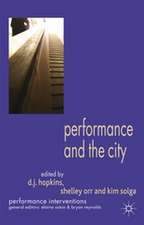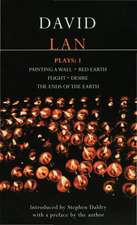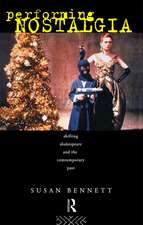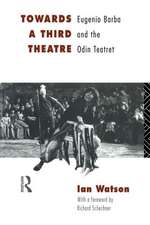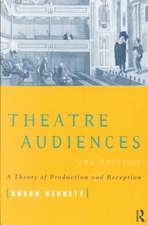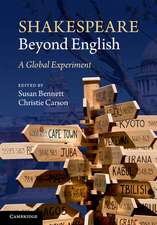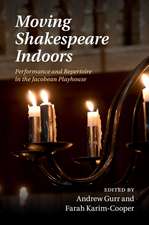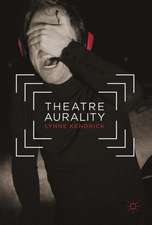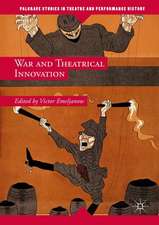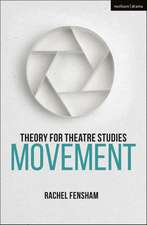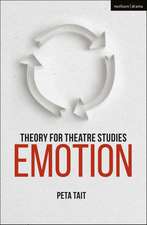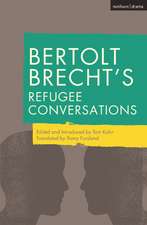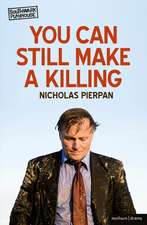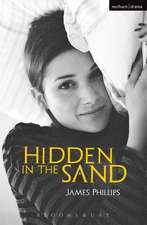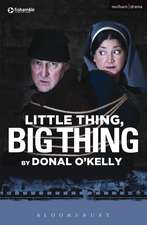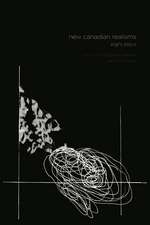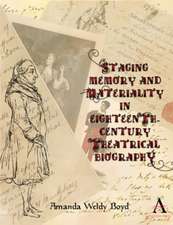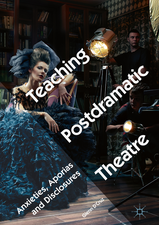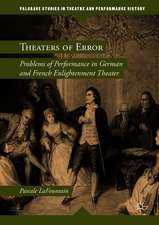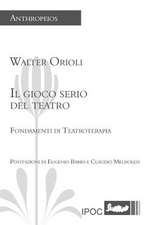Theory for Theatre Studies: Sound: Theory for Theatre Studies
Autor Susan Bennett Kim Solgaen Limba Engleză Paperback – 15 mai 2019
| Toate formatele și edițiile | Preț | Express |
|---|---|---|
| Paperback (1) | 105.89 lei 3-5 săpt. | +32.15 lei 4-10 zile |
| Bloomsbury Publishing – 15 mai 2019 | 105.89 lei 3-5 săpt. | +32.15 lei 4-10 zile |
| Hardback (1) | 373.02 lei 6-8 săpt. | |
| Bloomsbury Publishing – 15 mai 2019 | 373.02 lei 6-8 săpt. |
Preț: 105.89 lei
Preț vechi: 130.20 lei
-19% Nou
Puncte Express: 159
Preț estimativ în valută:
20.27€ • 20.89$ • 17.11£
20.27€ • 20.89$ • 17.11£
Carte disponibilă
Livrare economică 10-24 februarie
Livrare express 24-30 ianuarie pentru 42.14 lei
Preluare comenzi: 021 569.72.76
Specificații
ISBN-13: 9781474246477
ISBN-10: 1474246478
Pagini: 168
Dimensiuni: 129 x 198 x 14 mm
Greutate: 0.2 kg
Editura: Bloomsbury Publishing
Colecția Methuen Drama
Seria Theory for Theatre Studies
Locul publicării:London, United Kingdom
ISBN-10: 1474246478
Pagini: 168
Dimensiuni: 129 x 198 x 14 mm
Greutate: 0.2 kg
Editura: Bloomsbury Publishing
Colecția Methuen Drama
Seria Theory for Theatre Studies
Locul publicării:London, United Kingdom
Caracteristici
It features elaborated case studies that can serve as a model for others' investigations of sound in theatrical production and live performance
Notă biografică
Susan Bennett is University Professor in the Department of English at the University of Calgary, Canada.
Cuprins
AcknowledgementsSeries Preface SOUND: An Introduction SECTION ONE: Classical Sound Theatres in Ancient Greece and Aristotle's Poetics The vocal map of ancient Greek dramaCase study: Aristophanes's The Frogs Vitruvius on acoustics: De Architectura Shakespeare's Globe and Francis Bacon's Sylva Sylvarum Acoustic world-making on the early modern stage Case study: Shakespeare's The Tempest A sonic imagination of early modern London SECTION TWO: Avant-garde Sound New technologies for sound performance Case study: Luigi Russolo's intonamuri and 'The Art of Noise' Hanging on the telephone: Sigmund Freud and Roland Barthes Case study: Jean Cocteau's The Human Voice The sounds of silence: John Cage's future of music Acousmatics and radiophonics: Pierre Schaffer and the BBC Aura and archive: making sound memories Case study: Samuel Beckett's Krapp's Last Tape SECTION THREE: Experiential Sound Prosthetic performance and deterritorialised listening Case study: Janet Cardiff's sound walks Listening to women: Andrea Hornick and Luce Irigaray Affective theatres of embodied sound Case study: Shannon Yee's Reassembled, Slightly Askew Case study: Rimini Protokoll's Situation Rooms Coda: sound across the world References Further Reading Index
Recenzii
This book presents an important analysis of the fundamental function of sound in theatre, from the acoustic expanses of Ancient Greek architecture, to the personal-political spaces of contemporary Headphone theatre. The breadth of knowledge and new insights afforded by the book are a breath of fresh air for researchers and students alike in a field which is often treated as a sub-category of other disciplines. Bennett draws on a wide range of theory and philosophy to demonstrate how sound has played a much more significant role in playtexts, production and perception than traditional theatre studies scholarship has hitherto considered, and puts forward a politics of theatre sound and its potential to perform difference through acoustic experience and ethical listening.
This is an indispensable new resource for theatre students, scholars and makers. It takes readers on an engaging and thoughtful journey through the constantly evolving role of sound in theatre studies. Starting with 'Classical Sound' the volume considers experiences of listening, of producing sound and of being immersed in sonic environments. In the process it explores the philosophical, political, ethical and technological roles of sound from Aristotle to the 21st century. What is most impressive about this volume, however, is the nuanced way it draws together key theoretical, critical and aesthetic ideas to provide the reader with a clear sense of how these operate to shape both what they hear and do not hear within and in response to the theatre. This is a timely, valuable and thoughtfully written book that will be of great utility for all those interested in theatre, sound studies and in the acts of producing theatre, of listening and of understanding what they hear.
This is an indispensable new resource for theatre students, scholars and makers. It takes readers on an engaging and thoughtful journey through the constantly evolving role of sound in theatre studies. Starting with 'Classical Sound' the volume considers experiences of listening, of producing sound and of being immersed in sonic environments. In the process it explores the philosophical, political, ethical and technological roles of sound from Aristotle to the 21st century. What is most impressive about this volume, however, is the nuanced way it draws together key theoretical, critical and aesthetic ideas to provide the reader with a clear sense of how these operate to shape both what they hear and do not hear within and in response to the theatre. This is a timely, valuable and thoughtfully written book that will be of great utility for all those interested in theatre, sound studies and in the acts of producing theatre, of listening and of understanding what they hear.







